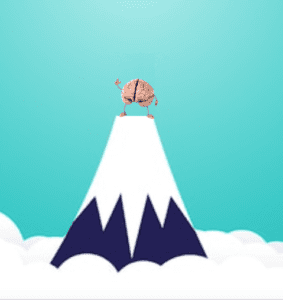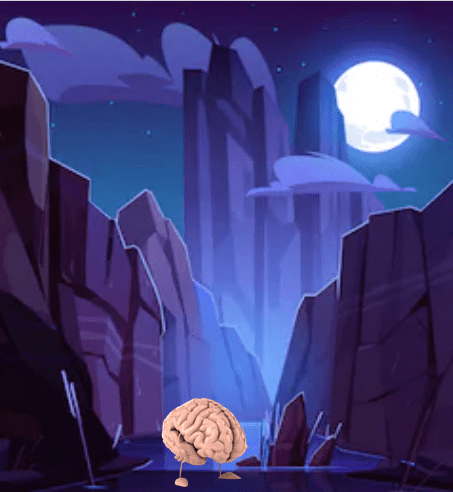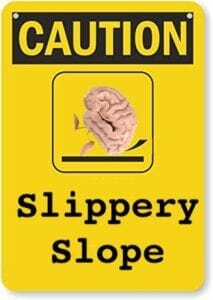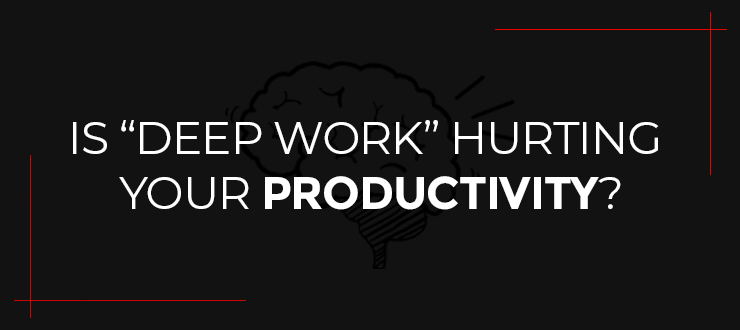A Tale of Two Times
As a CEO Nathan strongly believes in the productivity benefits of deep work.
In 2018 he read the book, some articles, decided to give it a try and immediately felt the benefits of it in his business. He now swears by it.
In fact he saw so much value in it that he decided that for productivity's sake it's not worth it to work on his meaningful projects during regular business hours when he's likely to get interrupted.
Because he's the CEO he was able to tailor his schedule to have 3 chunks of deep work per week and left all his meaningful work to those time slots.
This is a great example of an optimization. He found something that helps him create better outcomes for himself and his business and leaned into it. This is something we should all strive to do!
But recently, those chunks of time he set aside have been taken over by other things. Putting out business fires from the pandemic... Meetings running over time... Family obligations.
So what happens now that those deep work time-blocks are no longer available?
How will Nathan be able to deal with it and will he be capable of getting the meaningful work done in less optimal conditions? Will he be able to easily switch back into his old Pre-Deep Work work habits that successfully got his business off the ground?
I'm not so sure. Here's why.
Optimization vs. Dependency
Making an effort to optimize our lives is massively important. It can save us lots of time, money and pain. You'll produce some of your very best stuff from the heights of Optimization Mountain.

Being able to work from Optimization Mountain is an art in and of itself that isn't to be ignored... but there's a dark slippery slope connected to it.
When we find success with a certain thing (tool or even lucky charm) or a process (like deep work) our brains start tying success to that and that's a very slippery slope.
Our brains get confused and start to get sucked into false narratives as to what's actually causing our success. We start giving certain things too much power, become reliant on them and start sliding down that slippery slope towards Dependency Valley.
Dependency Valley is a dark and dangerous place. It's a place where the fear of perfectionism runs strong, procrastination rules supreme and very little if anything of value gets done.

The real issue with Dependency Valley is that our brains end up there through a slow and subtle decline that is very hard to notice in real time. We're usually not even aware we're there until it's too late.
The first subtle and slippery step form Optimization Mountain towards Dependency Valley starts when we cross over from thinking:
"I'm a capable human being able of achieving great things if I put out smart effort... and this thing is helpful tool when available"
To:
"Man I had so much success when that tool/process was there for me"
Which can subtly lead to:
"Well if I can only produce my best when I have this thing/I'm in the zone then there's no point in trying right now. It will be wasted energy. I should save that energy for when the situation is more favorable."
That's the point where we cross the dangerous threshold from the productive Land of Optimization to Dependency Valley.
Sounds silly, right?
But here's why this happens in our heads.
Evolution and Failure
Humans do not like the idea of failure, especially if it's public.
Our very primal brains, who still haven't caught up to the fact that it's 2020, think of failure like this:
"If we fail and look foolish or fail and waste precious resources then the tribe won't like us. If the tribe doesn't like us then we might get kicked out. If we get kicked out and we're alone in the African Savanna then we'll probably get eaten by a lion."
Since our brains don't like the prospect of being eaten by a lion they naturally tell us "It's probably best to wait until conditions are perfect before we give this a go."
Now that's a very extreme simplification of things but social isolation and judgement are two of the biggest impediments to people's success... and Dependency Valley was forged from those fears.
Human Complexity and the Big Picture
So with all of that in mind, what do you think would happen to 99.9% of people if you told them that there's data backed studies that say:
"Deep work allows you to quickly master complicated information and produce better results in less time. Deep work will make you better at what you do and provide the sense of true fulfillment that comes from craftsmanship."
What if they actually experience this productivity flow and have now created a new benchmark in their head of what they believe should be their standard?
Is it possible that they'll start to develop a dependency on it?
That's the issue with Deep Work. It attached to a slippery slope.

In an ideal world Deep Work is an amazing thing and we can all make effort to create more of these focused sessions in our week.
However since the world is not ideal, there's a psychological danger here to be cautious of.
Not all months, weeks or days will be ideal, but that can't be an excuse not to get to work on the impactful and meaningful things!
To put it simply we will never reach our maximum potential being fair weather workers. We must show up on a daily basis and put in work, even when conditions aren't ideal. Otherwise by definition they're leaving something on the table.
When the situation calls for it we have to overcome the natural fears that suck us into Dependency Valley.
So What's the First Step out of Dependency Valley?
In most cases simple awareness is more than half the battle. If you can recognize that your mind is starting to slide into Dependency Valley or has settled there then you can start to take corrective action.
An easy way to recognize this is whenever we hear whispers in the back of our head saying:
"Shouldn't we just leave this for a time when we can really be in the zone?"
It's a red light.
That's a signal that our lesser self, the un-evolved part of our brain who's more afraid of surviving in the savannas rather than thriving in the 21st century has taken control.
It's a signal that we've actually become entrapped by the concept of Deep Work.
When this happens you have to ask yourself if you're ok with being comfortable and complacent in Dependency Valley or will you decide to do what's necessary in order to see the results that you truly want?

